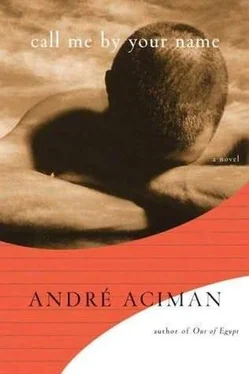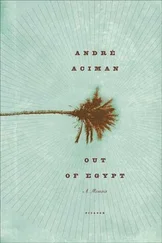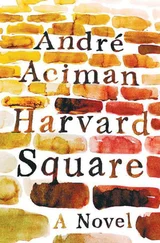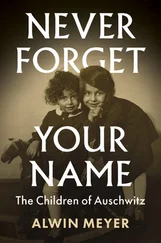André Aciman - Call Me by Your Name
Здесь есть возможность читать онлайн «André Aciman - Call Me by Your Name» весь текст электронной книги совершенно бесплатно (целиком полную версию без сокращений). В некоторых случаях можно слушать аудио, скачать через торрент в формате fb2 и присутствует краткое содержание. Год выпуска: 2007, Издательство: Farrar, Straus and Giroux, Жанр: Современная проза, на английском языке. Описание произведения, (предисловие) а так же отзывы посетителей доступны на портале библиотеки ЛибКат.
- Название:Call Me by Your Name
- Автор:
- Издательство:Farrar, Straus and Giroux
- Жанр:
- Год:2007
- ISBN:нет данных
- Рейтинг книги:5 / 5. Голосов: 6
-
Избранное:Добавить в избранное
- Отзывы:
-
Ваша оценка:
- 100
- 1
- 2
- 3
- 4
- 5
Call Me by Your Name: краткое содержание, описание и аннотация
Предлагаем к чтению аннотацию, описание, краткое содержание или предисловие (зависит от того, что написал сам автор книги «Call Me by Your Name»). Если вы не нашли необходимую информацию о книге — напишите в комментариях, мы постараемся отыскать её.
is clear-eyed, bare-knuckled, and ultimately unforgettable.
Call Me by Your Name — читать онлайн бесплатно полную книгу (весь текст) целиком
Ниже представлен текст книги, разбитый по страницам. Система сохранения места последней прочитанной страницы, позволяет с удобством читать онлайн бесплатно книгу «Call Me by Your Name», без необходимости каждый раз заново искать на чём Вы остановились. Поставьте закладку, и сможете в любой момент перейти на страницу, на которой закончили чтение.
Интервал:
Закладка:
When I think back to that summer, I can never sort the sequence of events. There are a few key scenes. Otherwise, all I remember are the “repeat” moments. The morning ritual before and after breakfast: Oliver lying on the grass, or by the pool, I sitting at my table. Then the swim or the jog. Then his grabbing a bicycle and riding to see the translator in town. Lunch at the large, shaded dining table in the other garden, or lunch indoors, always a guest or two for lunch drudgery . The afternoon hours, splendid and lush with abundant sun and silence.
Then there are the leftover scenes: my father always wondering what I did with my time, why I was always alone; my mother urging me to make new friends if the old ones didn’t interest me, but above all to stop hanging around the house all the time — books, books, books, always books, and all these scorebooks, both of them begging me to play more tennis, go dancing more often, get to know people, find out for myself why others are so necessary in life and not just foreign bodies to be sidled up to. Do crazy things if you must, they told me all the while, forever prying to unearth the mysterious, telltale signs of heartbreak which, in their clumsy, intrusive, devoted way, both would instantly wish to heal, as if I were a soldier who had strayed into their garden and needed his wound immediately stanched or else he’d die. You can always talk to me. I was your age once, my father used to say. The things you feel and think only you have felt, believe me, I’ve lived and suffered through all of them, and more than once — some I’ve never gotten over and others I’m as ignorant about as you are today, yet I know almost every bend, every toll-booth, every chamber in the human heart.
There are other scenes: the postprandial silence — some of us napping, some working, others reading, the whole world basking away in hushed semitones. Heavenly hours when voices from the world beyond our house would filter in so softly that I was sure I had drifted off. Then afternoon tennis. Shower and cocktails. Waiting for dinner. Guests again. Dinner. His second trip to the translator. Strolling into town and back late at night, sometimes alone, sometimes with friends.
Then there are the exceptions: the stormy afternoon when we sat in the living room, listening to the music and to the hail pelting every window in the house. The lights would go out, the music would die, and all we had was each other’s faces. An aunt twittering away about her dreadful years in St. Louis, Missouri, which she pronounced San Lui , Mother trailing the scent of Earl Grey tea, and in the background, all the way from the kitchen downstairs, the voices of Manfredi and Mafalda — spare whispers of a couple bickering in loud hisses. In the rain, the lean, cloaked, hooded figure of the gardener doing battle with the elements, always pulling up weeds even in the rain, my father signaling with his arms from the living room window, Go back, Anchise, go back.
“That man gives me the creeps,” my aunt would say.
“That creep has a heart of gold,” my father would say.
But all of these hours were strained by fear, as if fear were a brooding specter, or a strange, lost bird trapped in our little town, whose sooty wing flecked every living thing with a shadow that would never wash. I didn’t know what I was afraid of, nor why I worried so much, nor why this thing that could so easily cause panic felt like hope sometimes and, like hope in the darkest moments, brought such joy, unreal joy, joy with a noose tied around it. The thud my heart gave when I saw him unannounced both terrified and thrilled me. I was afraid when he showed up, afraid when he failed to, afraid when he looked at me, more frightened yet when he didn’t. The agony wore me out in the end, and, on scalding afternoons, I’d simply give out and fall asleep on the living room sofa and, though still dreaming, know exactly who was in the room, who had tiptoed in and out, who was standing there, who was looking at me and for how long, who was trying to pick out today’s paper while making the least rustling sound, only to give up and look for tonight’s film listings whether they woke me or not.
The fear never went away. I woke up to it, watched it turn to joy when I heard him shower in the morning and knew he’d be downstairs with us for breakfast, only to watch it curdle when, rather than have coffee, he would dash through the house and right away set to work in the garden. By noon, the agony of waiting to hear him say anything to me was more than I could bear. I knew that the sofa awaited me in an hour or so. It made me hate myself for feeling so hapless, so thoroughly invisible, so smitten, so callow. Just say something, just touch me, Oliver. Look at me long enough and watch the tears well in my eyes. Knock at my door at night and see if I haven’t already left it ajar for you. Walk inside. There’s always room in my bed.
What I feared most were the days when I didn’t see him for stretches at a time — entire afternoons and evenings sometimes without knowing where he’d been. I’d sometimes spot him crossing the piazzetta or talking to people I’d never seen there. But that didn’t count, because in the small piazzetta where people gathered around closing time, he seldom gave me a second look, just a nod which might have been intended less for me than for my father, whose son I happened to be.
My parents, my father especially, couldn’t have been happier with him. Oliver was working out better than most of our summer residents. He helped my father organize his papers, managed a good deal of his foreign correspondence, and was clearly coming along with his own book. What he did in his private life and his time was his business— If youth must canter, then who’ll do the galloping? was my father’s clumsy adage. In our household, Oliver could do no wrong.
Since my parents never paid any attention to his absences, I thought it was safer never to show that they caused me any anxiety. I mentioned his absence only when one of them wondered where he’d been; I would pretend to look as startled as they were. Oh, that’s right, he’s been gone so long. No, no idea. And I had to worry not to look too startled either, for that might ring false and alert them to what was eating at me. They’d know bad faith as soon as they spotted it. I was surprised they hadn’t already. They had always said I got too easily attached to people. This summer, though, I finally realized what they meant by being too easily attached. Obviously, it had happened before, and they must have already picked up on it when I was probably too young to notice anything myself. It had sent alarming ripples through their lives. They worried for me. I knew they were right to worry. I just hoped they’d never know how far things stood beyond their ordinary worries now. I knew they didn’t suspect a thing, and it bothered me — though I wouldn’t have wanted it otherwise. It told me that if I were no longer transparent and could disguise so much of my life, then I was finally safe from them, and from him — but at what price, and did I want to be so safe from anyone?
There was no one to speak to. Whom could I tell? Mafalda? She’d leave the house. My aunt? She’d probably tell everyone. Marzia, Chiara, my friends? They’d desert me in a second. My cousins when they came? Never. My father held the most liberal views — but on this? Who else? Write to one of my teachers? See a doctor? Say I needed a shrink? Tell Oliver?
Tell Oliver. There is no one else to tell, Oliver, so I’m afraid it’s going to have to be you…
One afternoon, when I knew that the house was totally empty, I went up to his room. I opened his closet and, as this was my room when there were no residents, pretended to be looking for something I’d left behind in one of the bottom drawers. I’d planned to rifle through his papers, but as soon as I opened his closet, I saw it. Hanging on a hook was this morning’s red bathing suit which he hadn’t swum in, which was why it was hanging there and not drying on the balcony. I picked it up, never in my life having pried into anyone’s personal belongings before. I brought the bathing suit to my face, then rubbed my face inside of it, as if I were trying to snuggle into it and lose myself inside its folds — So this is what he smells like when his body isn’t covered in suntan lotion, this is what he smells like, this is what he smells like, I kept repeating to myself, looking inside the suit for something more personal yet than his smell and then kissing every corner of it, almost wishing to find hair, anything, to lick it, to put the whole bathing suit into my mouth, and, if I could only steal it, keep it with me forever, never ever let Mafalda wash it, turn to it in the winter months at home and, on sniffing it, bring him back to life, as naked as he was with me at this very moment. On impulse, I removed my bathing suit and began to put his on. I knew what I wanted, and I wanted it with the kind of intoxicated rapture that makes people take risks they would never take even with plenty of alcohol in their system. I wanted to come in his suit, and leave the evidence for him to find there. Which was when a crazier notion possessed me. I undid his bed, took off his suit, and cuddled it between his sheets, naked. Let him find me — I’ll deal with it, one way or another. I recognized the feel of the bed. My bed. But the smell of him was all around me, wholesome and forgiving, like the strange scent which had suddenly come over my entire body when an elderly man who happened to be standing right next to me in a temple on Yom Kippur placed his tallis over my head till I had all but disappeared and was now united with a nation that is forever dispersed but which, from time to time, comes together again when one being and another wrap themselves under the same piece of cloth. I put his pillow over my face, kissed it savagely, and, wrapping my legs around it, told it what I lacked the courage to tell everyone else in the world. Then I told him what I wanted. It took less than a minute.
Читать дальшеИнтервал:
Закладка:
Похожие книги на «Call Me by Your Name»
Представляем Вашему вниманию похожие книги на «Call Me by Your Name» списком для выбора. Мы отобрали схожую по названию и смыслу литературу в надежде предоставить читателям больше вариантов отыскать новые, интересные, ещё непрочитанные произведения.
Обсуждение, отзывы о книге «Call Me by Your Name» и просто собственные мнения читателей. Оставьте ваши комментарии, напишите, что Вы думаете о произведении, его смысле или главных героях. Укажите что конкретно понравилось, а что нет, и почему Вы так считаете.









